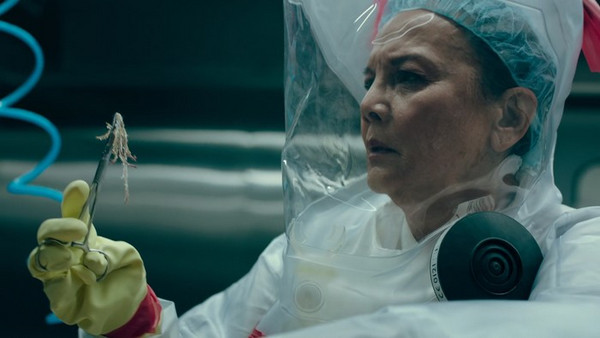Is long Covid overblown? Plus preparing for Alzheimer’s tests, creepy fungal infection, and more
27 Sep 2023
Posted by Andrew Kantor
Is long Covid being waaaaay overestimated?
We wouldn’t ask if there wasn’t a good reason. And that reason is based on research published in the British Medical Journal that concluded many of the epidemiological conclusions reached in long-Covid studies “have distorted the risks” by classifying too many health issues as long Covid. A lot of them are just typical of someone who’s been really sick.
Many after effects of Covid-19 infection include post-ICU syndrome — a constellation of health issues that are present when the patient is in intensive care and which persist after discharge home — and shortness of breath following pneumonia. Trouble is: these are common to many upper respiratory viruses.
Or, as a similar article from Slate pointed out last month:
If you get sick enough with any disease to the point where you require hospitalization, you are almost guaranteed some measure of long-term issues. Getting really sick is bad for your health.
So we need a definitive marker
If a symptom list doesn’t do the trick, we (that is, they) need to find an objective way to identify long Covid as opposed to “still not great after being seriously ill.”
Researchers out of Yale and Mount Sinai say they’ve found just such a biomarker. “Long Covid patients,” they wrote, “have clear differences in immune and hormone function from patients without the condition.” In other words, it’s not like there’s a molecule in their blood, but rather some specific biological changes:
“…abnormal T cell activity, reactivation of multiple latent viruses (including the Epstein-Barr virus and other herpesviruses) and significant reductions in cortisol levels.”
So maybe we’re close to a yes/no test rather than a maybe/maybe one.
Joe Ed gets a story
Check it out: The UGA College of Pharmacy has a feature on GPhA’s new president, Joe Ed Holt, “From Struggles to Success: Joe Ed Holt Gives Forward.”
Diabetes management is personal … and timely
How well people manage their glucose levels can be affected by what time of year or even day of the week it is — in fact, time plays a bigger role than you might think.
In the warm months when activity levels tend to be higher, patients’ glucose levels stayed in the healthy range through a larger part of the day than average. In the colder months from October to February, however, the time spent within the normal range was lower than average.
For working folks, M–F and 9–5 were good for management, “suggesting that workweek routines have a positive effect.” And the capital-H Holidays were, not surprisingly, a bad time for stable glucose levels.
The point, say the Dartmouth researchers whose study this was, is that diabetes management is a lot more granular and a lot more personal than a guidelines chart.
* * *
A reminder that this exists
The Open Payments Database lets you look up physicians and see how much money they’re getting from drug companies: openpaymentsdata.cms.gov.
Fun fact: California, and only California, requires prescribers to notify patients of the existence of the database.
OTC Alzheimer’s tests
Two tests are available for … well, not necessarily for Alzheimer’s itself, but for signs of Alzheimer’s. One has to be ordered by a physician who interprets the results, but the other, called AD-Detect, is available directly from Quest Diagnostics for $299.
Although you won’t be selling these tests to your patients, you might let them know they’re available. And — and this is the important part — you might want to bone up on your Alzheimer’s biomarker knowledge. As University College London neuroimmunologists put it, “the results may be complicated for the average person to interpret without the help of a doctor.”
(No, this is not a plug for GPhA’s upcoming Point-of-Care Test & Treat Certificate Program. Well, it is now. But it wasn’t.)
This story brought to you by “The Last of Us”
“Plant Fungus Infected a Human in First Reported Case of Its Kind”
The fact the patient in this case study appeared to have a fully functioning immune system, with no indication of being on immunosuppressant drugs, or having HIV, diabetes, or any kind of chronic illness, makes it even more perplexing. If not a touch concerning.
(Spoiler: After two months of treatment and two years of checkups, he’s fine.)

The Long Read: The RSV Vax Story edition
Covid vaccines got all the press — global pandemic and all — but they were made possible by older research on a vaccine for RSV. Getting Covid under control meant the final work could be done to get those RSV shots out to the most vulnerable.



